🚀 TL;DR
- A curated list of 15 books that equip solopreneurs with leverage, whether through smarter systems, mindset shifts, or scaling strategies.
- Titles are grouped by themes like productivity, outsourcing, resilience, and rethinking growth, making it easier to pick based on current challenges.
- Emphasis on building leverage — freeing up time and energy by adopting tools, frameworks, or outside support rather than doing everything solo.
- Books like Company of One, Blue Ocean Strategy, and Indistractable highlight paths to sustainable success without endless expansion.
- The collection is designed as a toolkit to revisit over time, drawing on different books as your business evolves.
When you're building a business alone, every decision, strategy, and mindset shift falls squarely on your shoulders.
I've been a remote solopreneur since 2005, growing multiple seven-figure businesses without the traditional corporate structure or massive teams. Books are still one of the most asymmetric bets for a solopreneur. They cost less than $20 for ideas that can change your next 5 years.
While business gurus online promise you 10 fads that could “change your life,” books go deeper. You get a chance to sit with proven concepts, absorb frameworks that have stood the test of time, and get into the minds of the brightest people in business. Some of these books I’ve referenced for decades…I call that foundations over fads.
In this guide, I've curated 15 essential books for solopreneurs across three domains:
- Strategy and positioning
- Mental models
- Relationship building
Let’s look at what they are and how they can help you as a solopreneur.
Domain #1: Strategy, Growth, and Positioning
The foundation of any successful solopreneur journey begins with a clear strategy and positioning.
These six books will help you carve out your unique space in the market and build sustainable growth systems:
1. "Blue Ocean Strategy" by W. Chan Kim and Renée Mauborgne
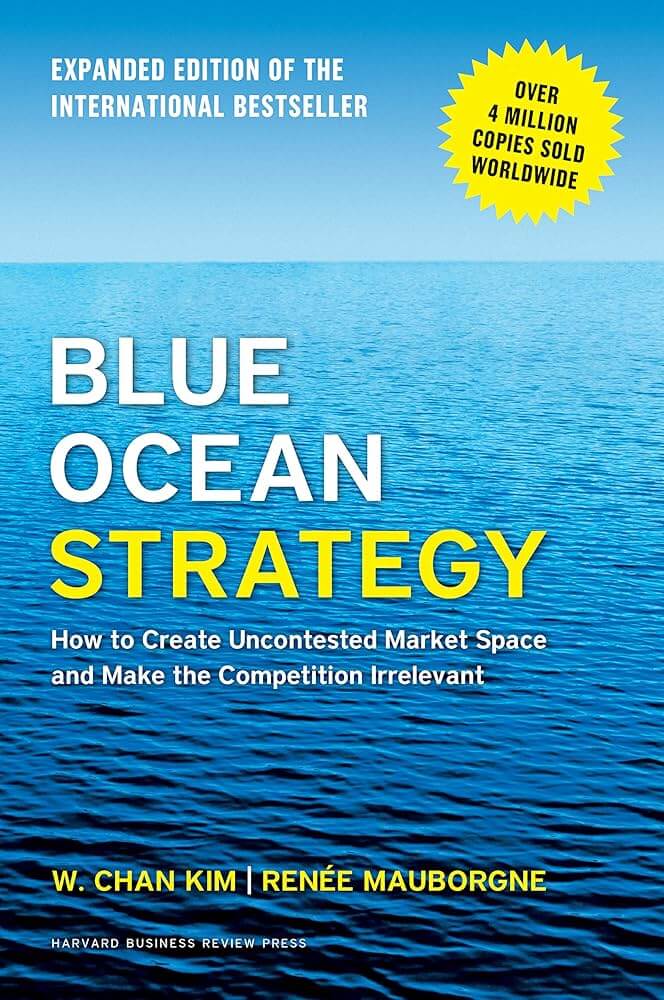
This book challenges the notion that you must compete in crowded, bloody "red oceans" where everyone fights for the same customers.
Instead, it shows you how to create "blue oceans" of uncontested market space where competition becomes irrelevant.
As a solopreneur, the concepts in this book will help you identify untapped opportunities where your unique skills can thrive without fighting against established competitors. The systematic frameworks for value innovation will transform how you think about your service offerings and target markets.
2. "Traction" by Gabriel Weinberg and Justin Mares
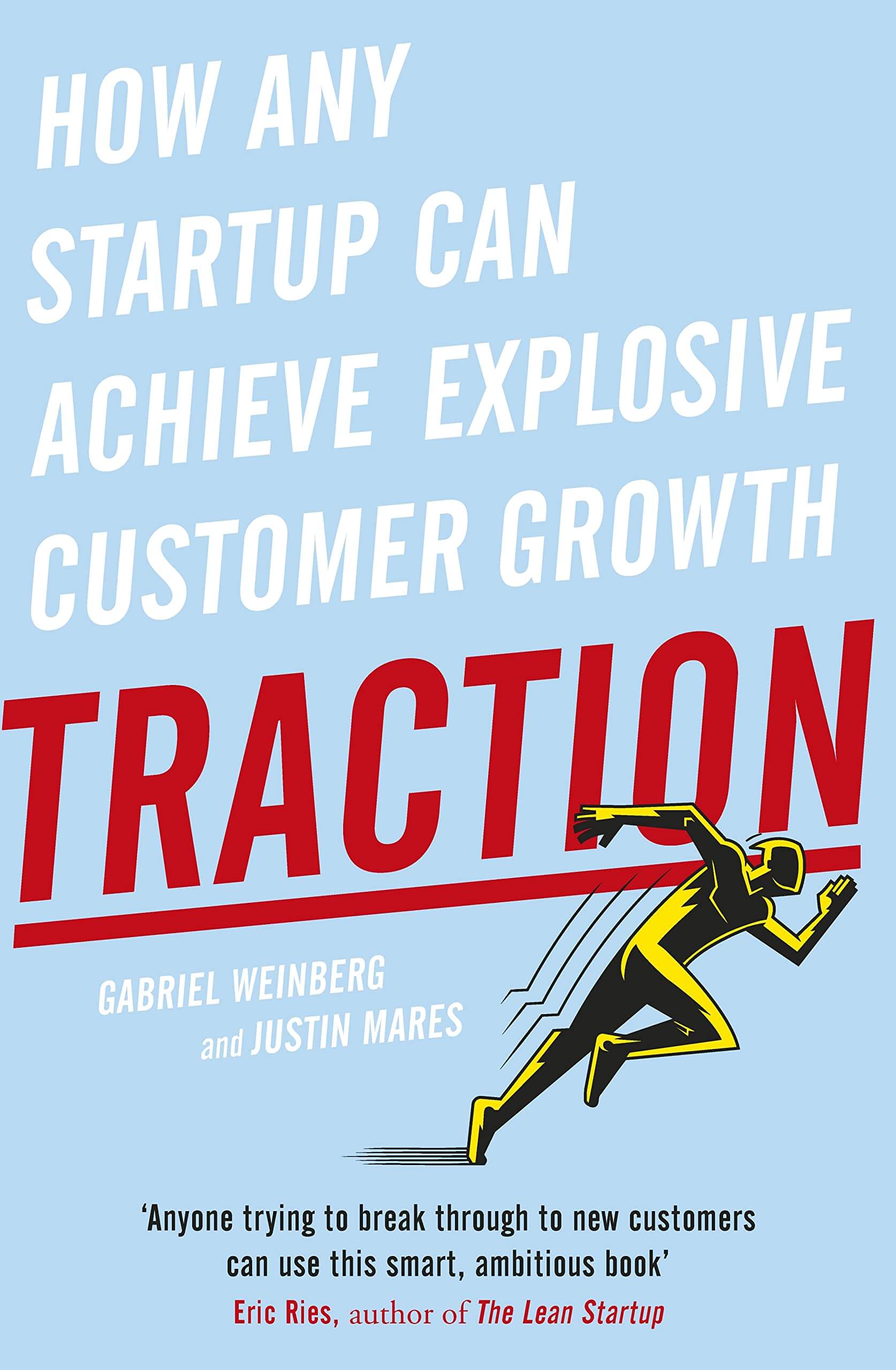
One of the biggest challenges solopreneurs face is gaining consistent customer acquisition.
"Traction" gives you a comprehensive roadmap for implementing 19 different customer acquisition channels, with practical advice on testing and scaling what works for your business.
What makes this book particularly valuable is its balanced approach—teaching you to dedicate equal time to product development and traction development.
This book provides the missing piece for solopreneurs who often excel at delivery but struggle with marketing.
3. "Grow to Greatness" by Edward D. Hess
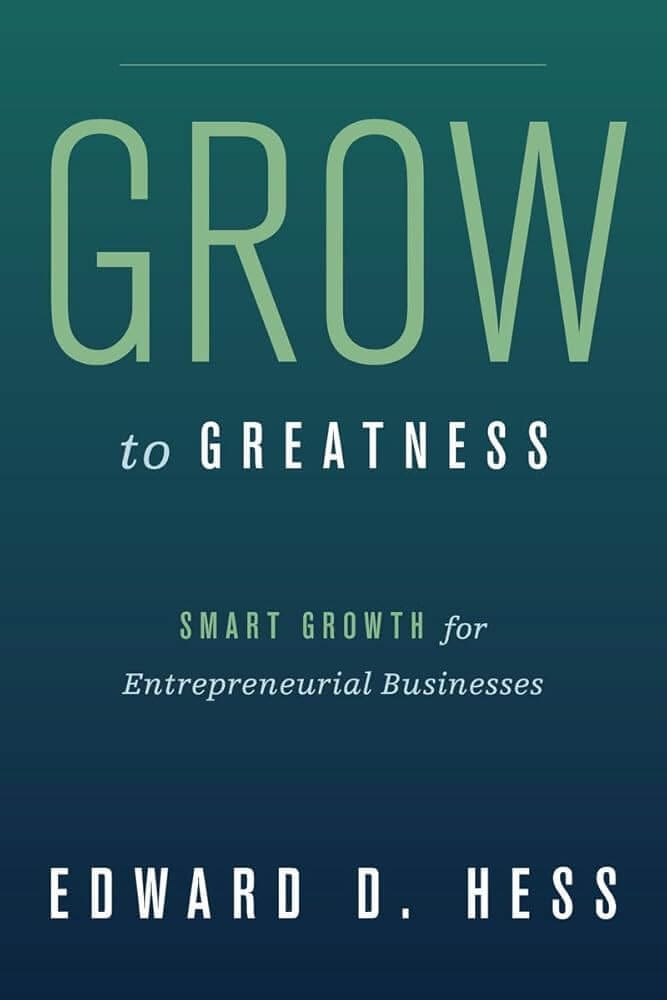
Most business books focus on starting up or running large enterprises, but "Grow to Greatness" specifically addresses the critical scaling phase where many solopreneurs get stuck.
Based on extensive research of successful small business growth, Hess offers practical frameworks for managing the unique challenges of scaling beyond your initial success.
The book emphasizes creating systems, processes, and controls that allow for sustainable growth without burning out. This is particularly relevant for one-person businesses looking to increase revenue without a proportionally growing workload.
4. "The Startup J Curve" by Howard Love
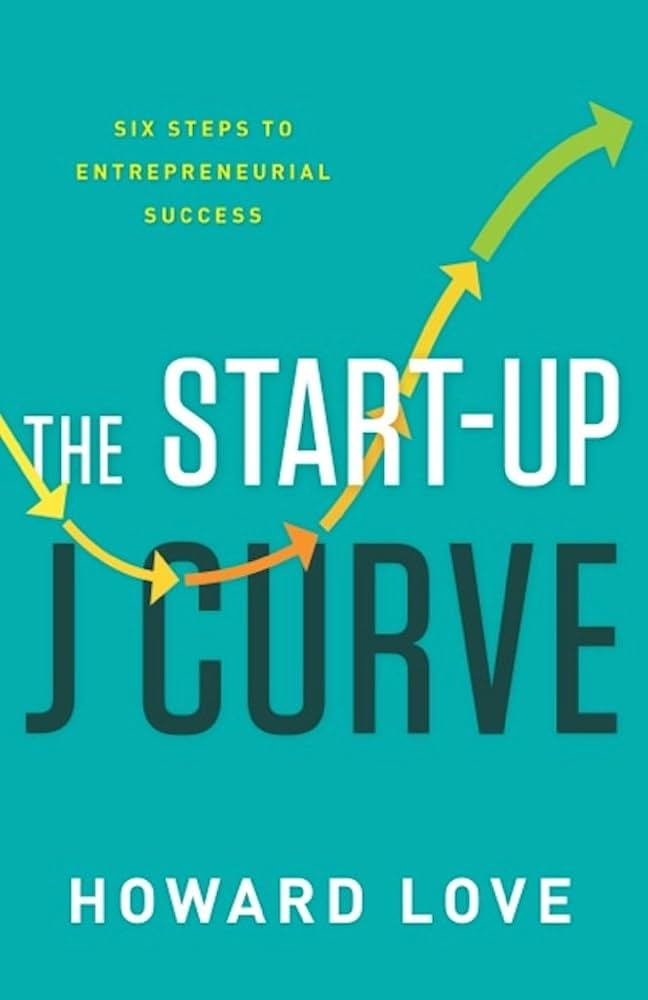
This book breaks down the entrepreneurial journey into six predictable phases:
- Create
- Release
- Morph
- Model
- Scale
- Harvest
Love's practical insights help solopreneurs understand which phase they're currently in and what strategic priorities should be their focus.
The "Morph" phase is especially valuable for solopreneurs, as it normalizes the pivots and adjustments that are often necessary but can feel like failures.
Understanding this natural evolution provides both strategic clarity and emotional resilience during challenging transitions.
5. "The Dip" by Seth Godin
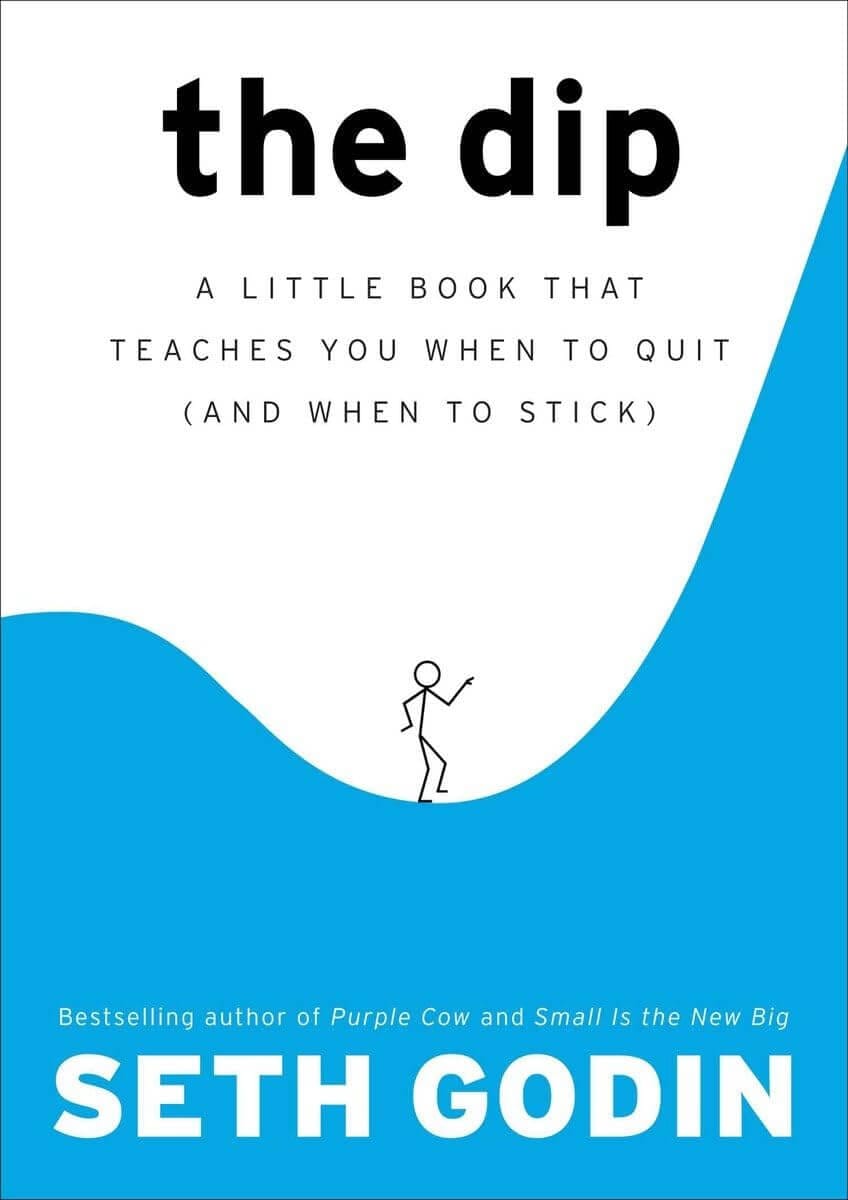
Short but profound, "The Dip" addresses every solopreneur's question: when to persist and when to quit.
Godin makes a compelling case that winners quit fast, quit often, and quit without guilt—until they commit to beating the right "dip."
For solopreneurs juggling multiple opportunities and facing limited resources, this book provides a framework for strategic quitting that frees up energy to focus on what truly matters. It's about being exceptional at the few things that will drive your success rather than mediocre at many.
6. "Building a StoryBrand" by Donald Miller
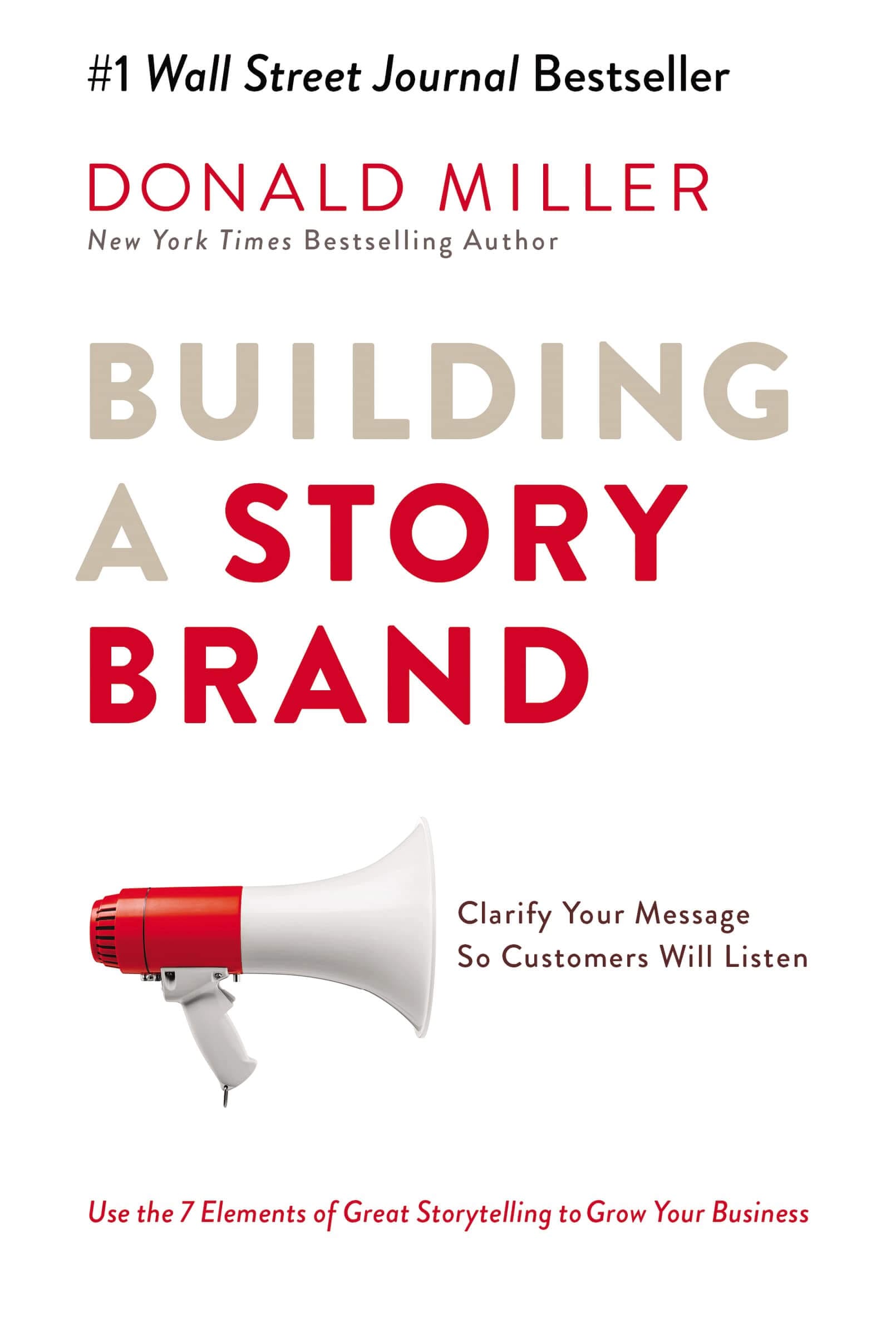
In a world where clarity wins, this book shows solopreneurs how to craft messaging that cuts through noise and connects deeply with customers.
Miller's seven-part framework positions your customer as the hero of the story and your business as the guide that helps them overcome challenges. This approach is particularly powerful for solopreneurs who need to quickly establish trust and communicate value without the backing of a large brand.
The book includes practical tools for creating websites, email campaigns, and sales materials that convert because they speak directly to customer needs.
Domain #2: Mental models
The right mental frameworks can dramatically improve how you think about your business, manage your time, and approach challenges.
These five books offer powerful mental models specifically valuable for solopreneurs:
7. "Indistractable" by Nir Eyal
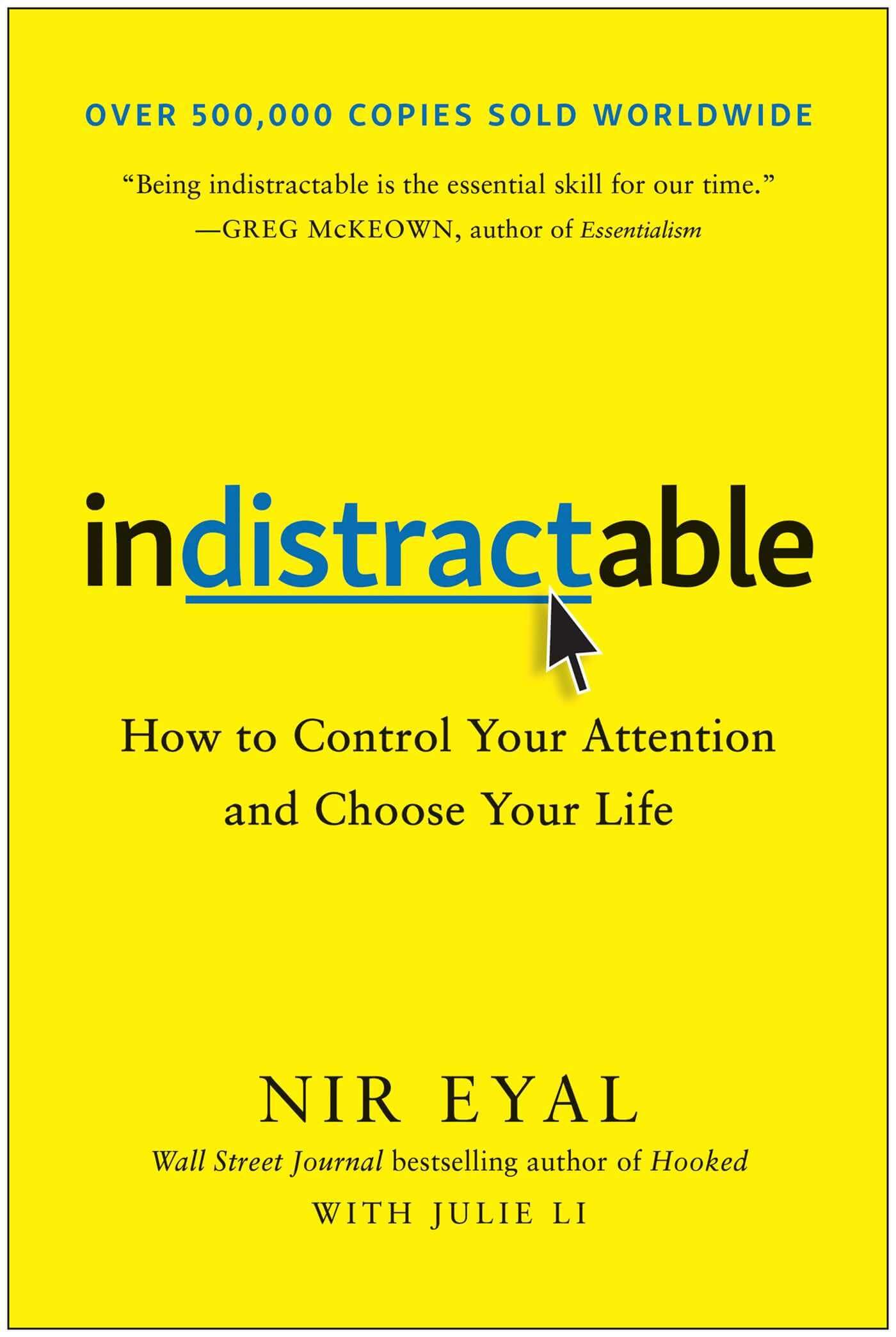
In a world designed to capture our attention, "Indistractable" provides a practical framework for taking control of your focus.
Eyal, who previously wrote about creating habit-forming products, now reveals how to break free from the very distractions those products create.
For solopreneurs who serve as their managers, this book offers actionable techniques for time management, setting boundaries, and creating environments that support deep work.
The four-step model for becoming indistractable is particularly valuable when you're juggling multiple business responsibilities without external accountability.
8. "The 4-Hour Workweek" by Tim Ferriss
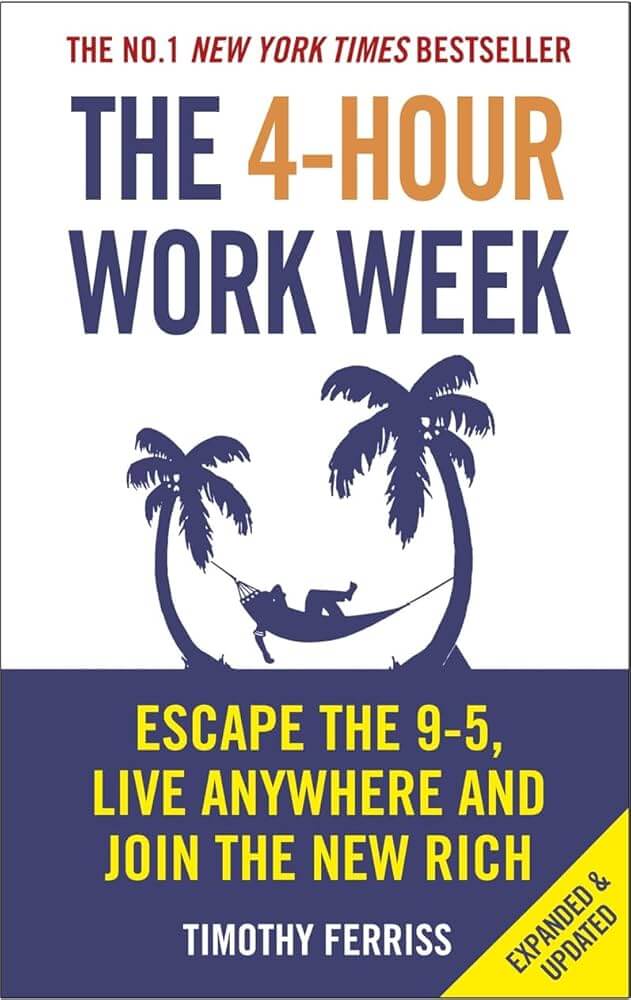
While the title may seem hyperbolic, this modern classic continues to challenge conventional thinking about work, productivity, and lifestyle design.
Ferriss introduces core concepts like the 80/20 principle, batching similar tasks, and building automated income streams that have become essential to solopreneur thinking.
The book's DEAL framework—Definition, Elimination, Automation, and Liberation—provides a systematic approach to reclaiming your time while maintaining or increasing your business output.
These principles offer a path to sustainability for solopreneurs at risk of burnout.
9. "Rework" by Jason Fried and David Heinemeier Hansson
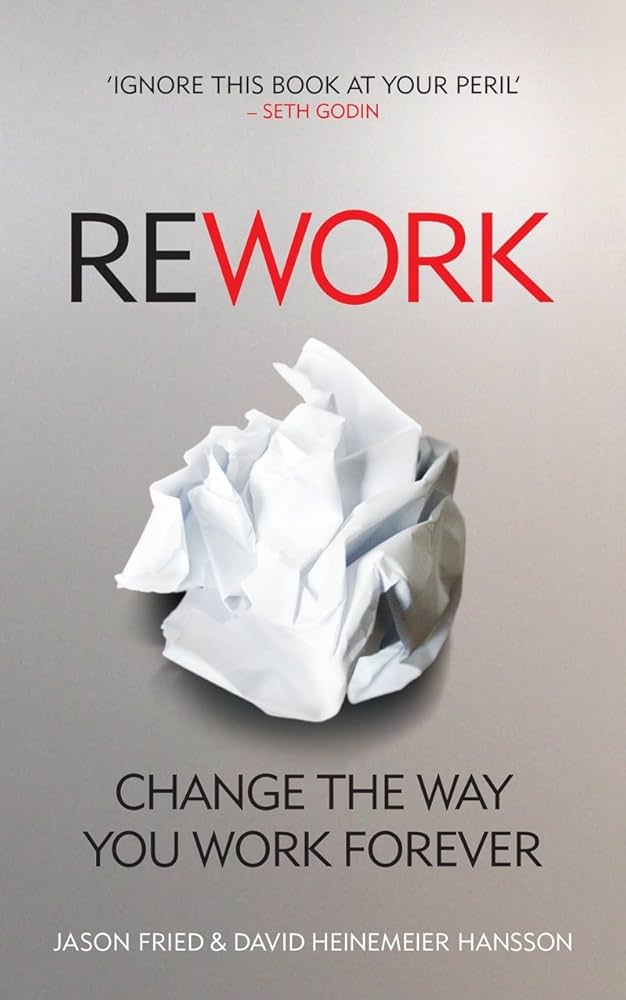
Written by the founders of Basecamp, this book challenges traditional business wisdom. It offers an alternative playbook for building a lean, profitable business without outside funding, excessive growth targets, or complicated planning.
Its rapid-fire format delivers numerous counterintuitive insights particularly relevant to solopreneurs:
- Working with constraints
- Focusing on what won't change
- Embracing simplicity
- Prioritizing sustainable profitability
The permission this book gives to ignore conventional business advice is liberating for independent professionals.
10. "A Whole New Mind" by Daniel H. Pink
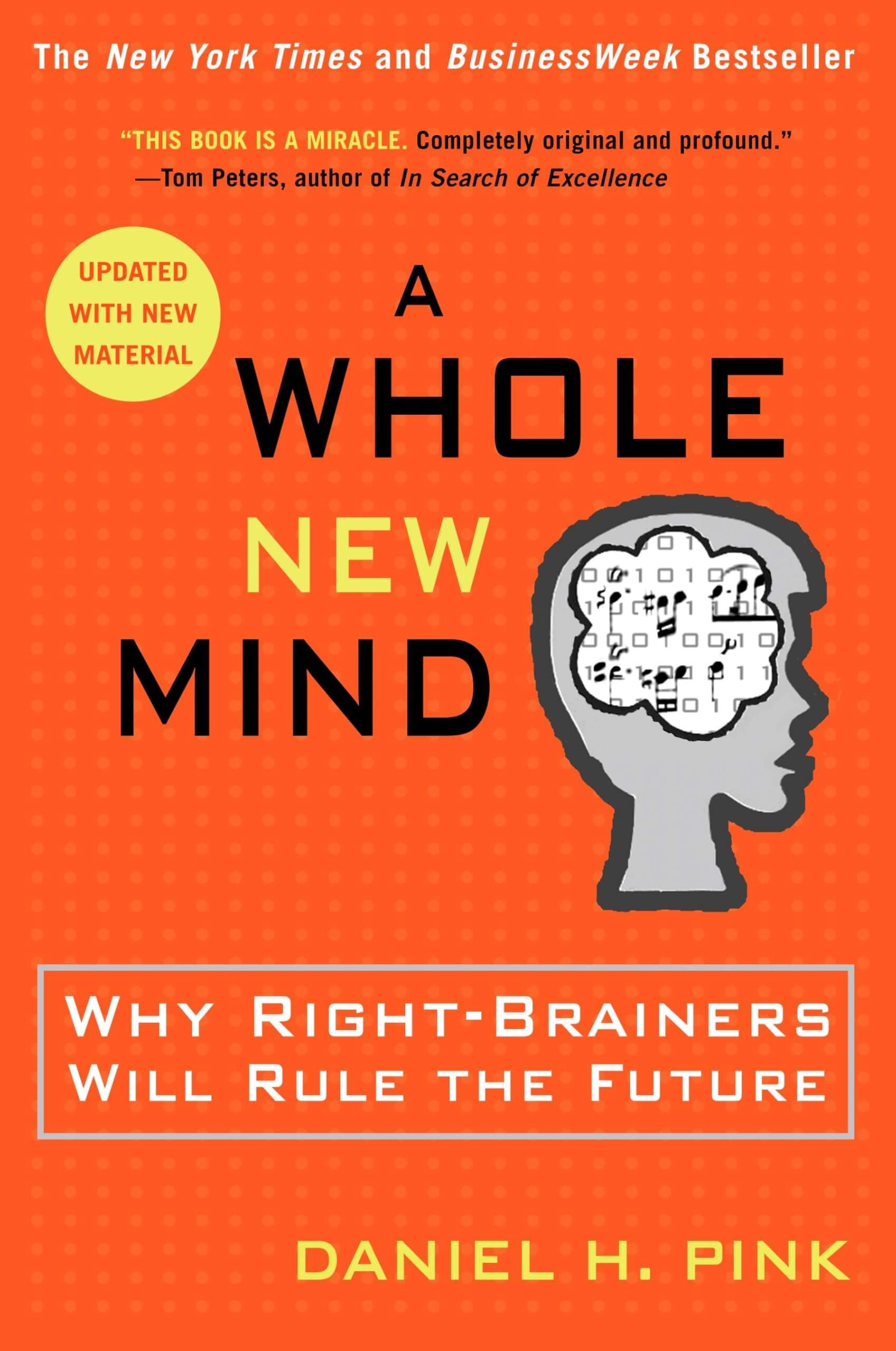
Pink makes a compelling case that we're moving from the Information Age to the Conceptual Age, where right-brain qualities like creativity, empathy, and big-picture thinking will drive success.
He introduces six essential aptitudes: design, story, symphony, empathy, play, and meaning.
For solopreneurs navigating rapidly changing markets, this book provides a framework for developing creative, human-centered capabilities that will remain valuable even as routine tasks become automated. It helps you position your services toward high-value work that can't be easily outsourced or replicated.
11. "Overachievement" by John Eliot
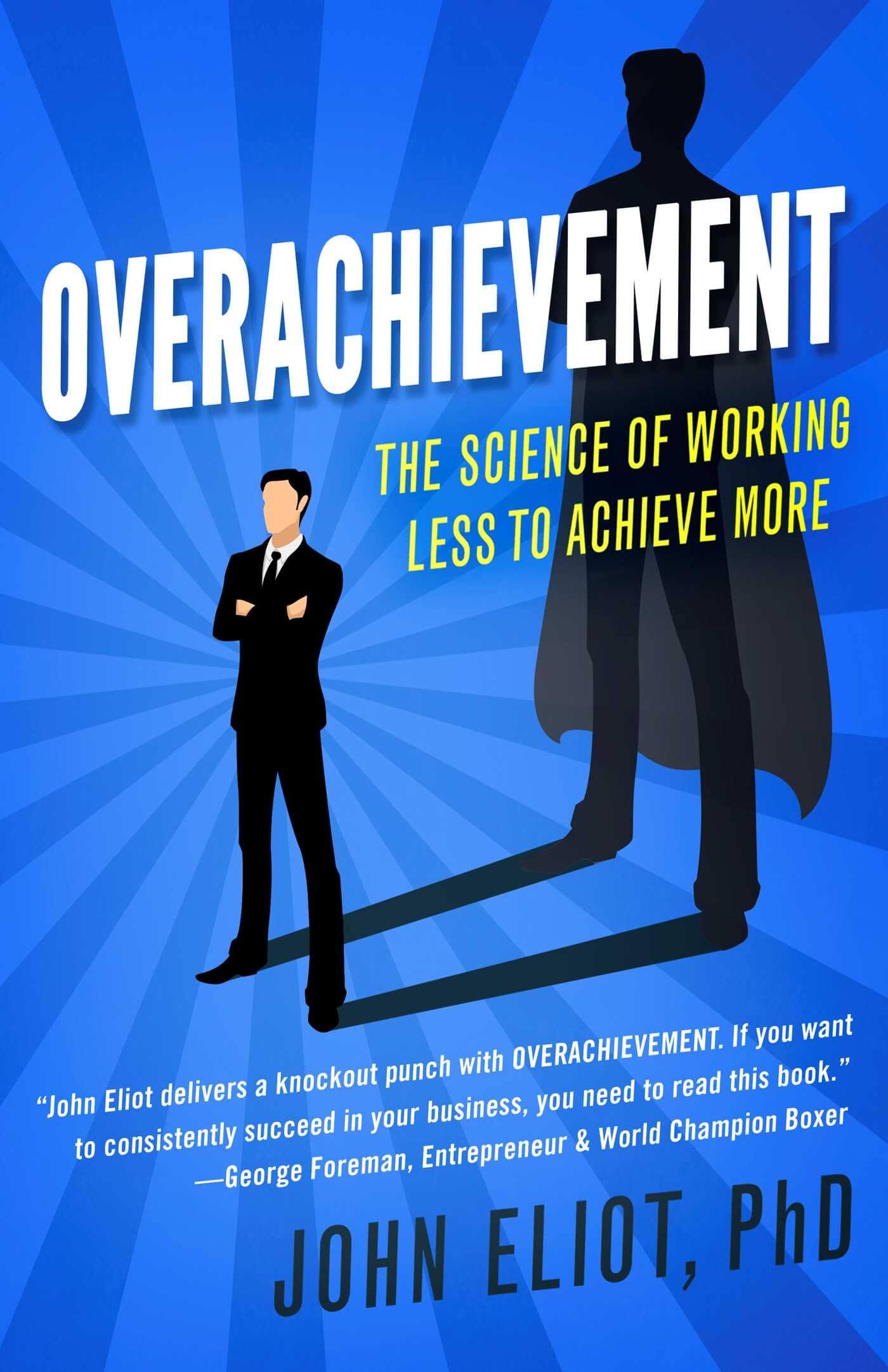
Conventional performance advice focuses on stress management. But Eliot's counterintuitive approach embraces "productive stress" as fuel for exceptional performance.
Drawing from his work with elite athletes and executives, he shows how to enter a state of "trusting mindlessness" where your training takes over.
This perspective is particularly valuable for solopreneurs who often face high-pressure situations like client presentations, sales calls, or launches. Instead of trying to eliminate pressure, you'll learn to harness it for peak performance when it matters most.
Domain #3: Speaking and relationships
As a solopreneur, your ability to communicate effectively and build strong relationships directly impacts your business success. These four books provide frameworks for mastering these essential skills:
12. "25 Ways to Win with People" by John C. Maxwell
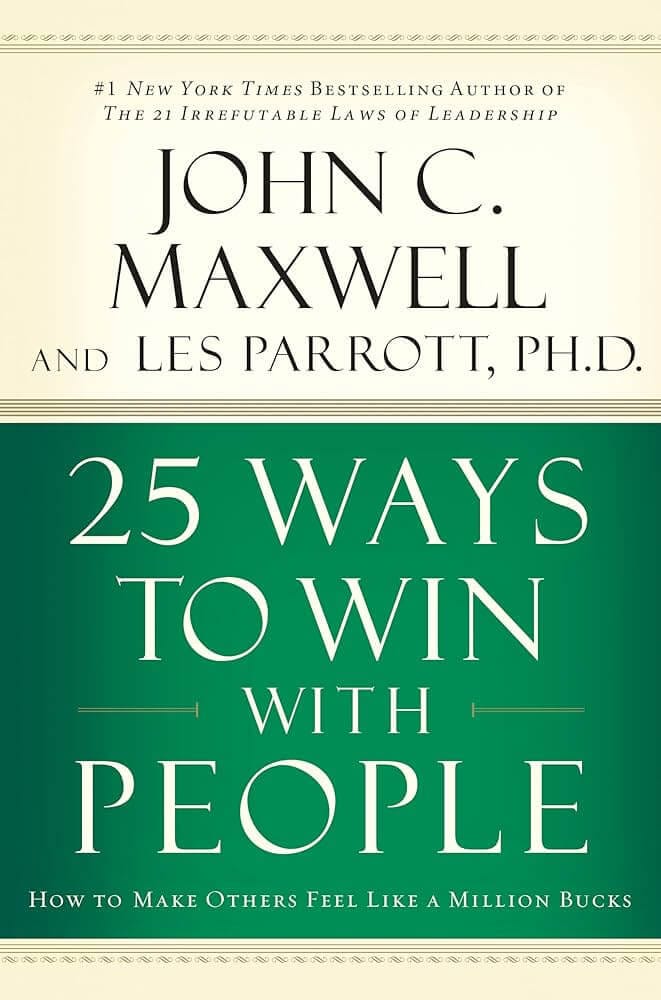
This practical guide from leadership expert John Maxwell offers simple yet powerful techniques for building meaningful professional relationships.
Each chapter presents a specific principle for connecting with others, supported by real-world examples and actionable steps.
These principles provide a foundation for authentic connection beyond transactional networking for solopreneurs whose success depends on client relationships, referrals, and partnerships.
The book's emphasis on helping others succeed creates a relationship-building approach that feels natural rather than manipulative.
13. "Confessions of a Public Speaker" by Scott Berkun
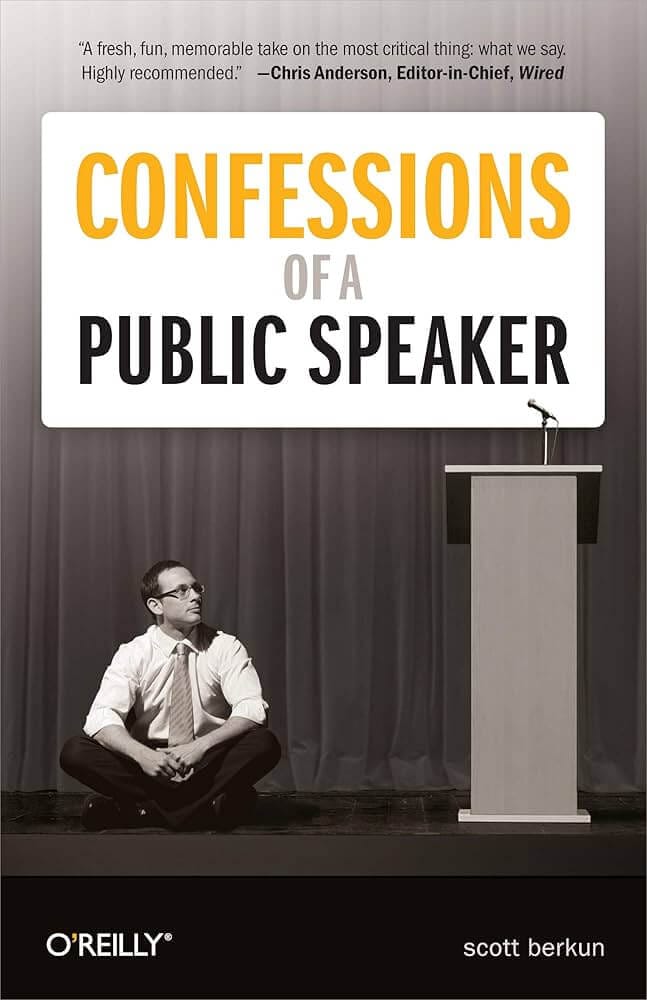
Whether you're pitching to clients, speaking at industry events, or creating video content, effective communication is essential for solopreneurs. Berkun combines practical advice with honest, often humorous accounts of his own speaking disasters and recoveries.
You'll learn how to prepare for presentations, handle difficult audiences, overcome nervousness, and recover gracefully from inevitable mistakes.
Solopreneurs who need to represent their brand in high-stakes situations can use these insights to become better communicators.
14. "10 Simple Secrets of the World's Greatest Business Communicators" by Carmine Gallo
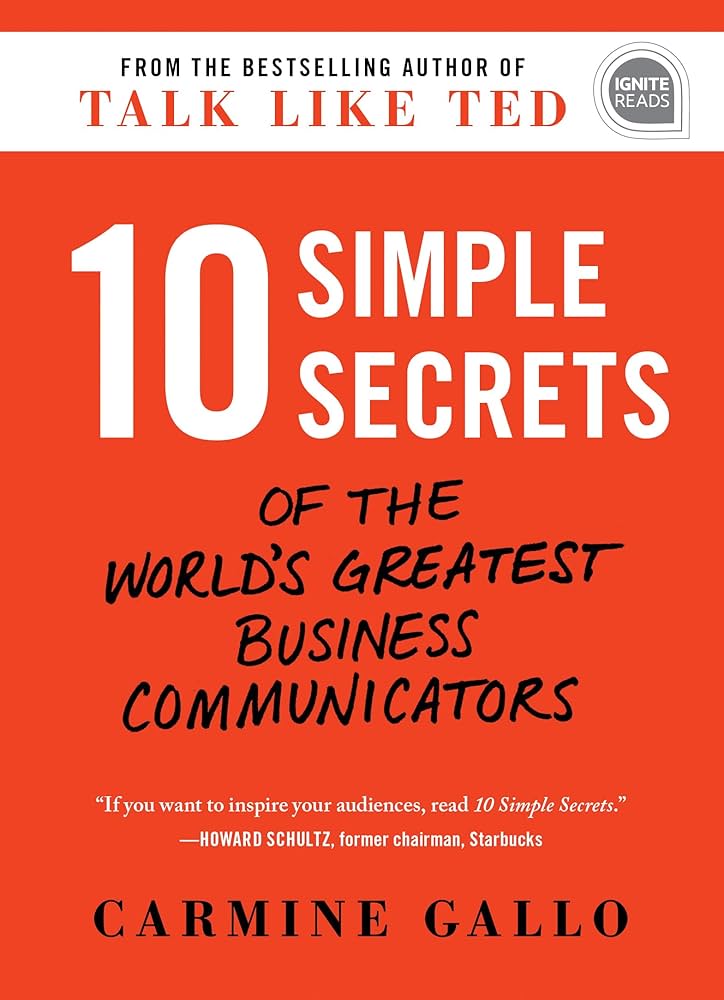
Gallo analyzes communication techniques from business legends like Steve Jobs, Warren Buffett, and Suze Orman to extract principles that professionals can apply.
The focus on simplicity, passion, and storytelling is relevant for solopreneurs who must clearly communicate their value proposition.
The book's practical approach includes specific techniques for:
- Eliminating filler words
- Using vocal variety
- Incorporating compelling data
- Structuring presentations for maximum impact
These skills translate directly to client meetings, marketing materials, and digital content.
15. "The Book of Beautiful Questions" by Warren Berger
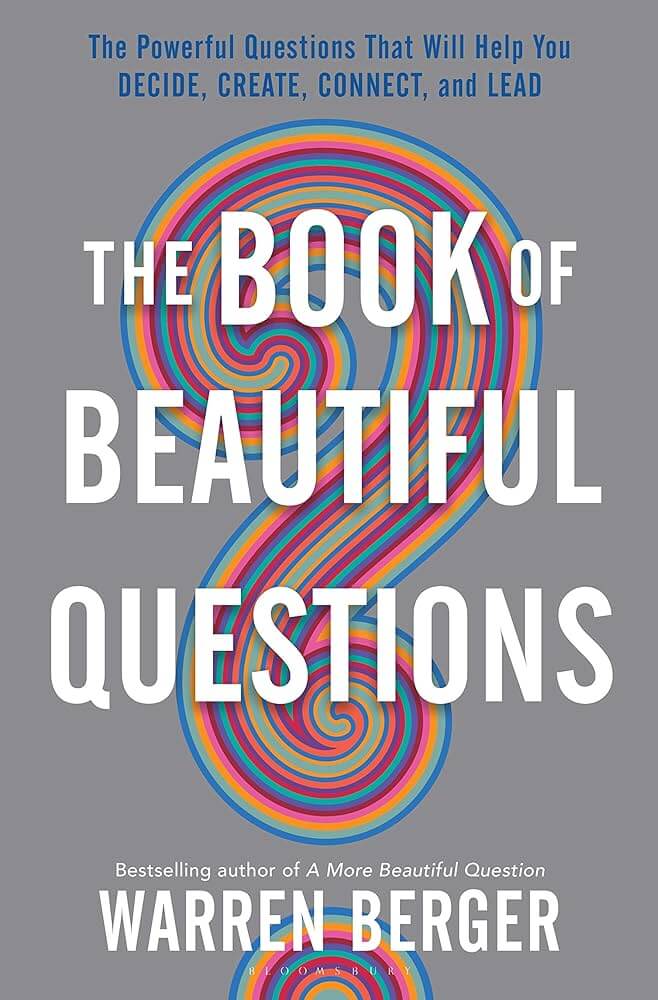
Mastering the art of asking powerful questions can transform how you understand client needs, solve problems, and generate creative ideas.
Berger demonstrates how the right questions at the right time can unlock opportunities and deepen relationships.
The book organizes questions into practical categories for decision-making, creativity, connecting with others, and leadership. This questioning toolkit provides a systematic approach to gaining clarity and creating better relationships with people.
Use books to build strong foundations in your business
These 15 books represent different voices, perspectives, and areas of expertise that can guide you through various challenges and opportunities.
I read business books less to follow step-by-step advice and more to train my pattern recognition. Over time, you see which ideas repeat across disciplines and which ones are actually useful in your work.
Consider adopting this approach to reading:
- Start with just 1-3 books addressing your most pressing challenge. Don't overwhelm yourself trying to read everything at once.
- Read with intention, taking notes on specific ideas you can implement in your business. A book that doesn't lead to at least one concrete action probably wasn't right for your current needs.
- Create a physical or digital commonplace book where you collect your favorite passages, insights, and action items from your reading. This becomes a personalized resource you can revisit when facing specific challenges.
Each of these books offers potential breakthroughs worth many times their purchase price—if you apply what you learn.
Your business—and your future self—will thank you for it.

